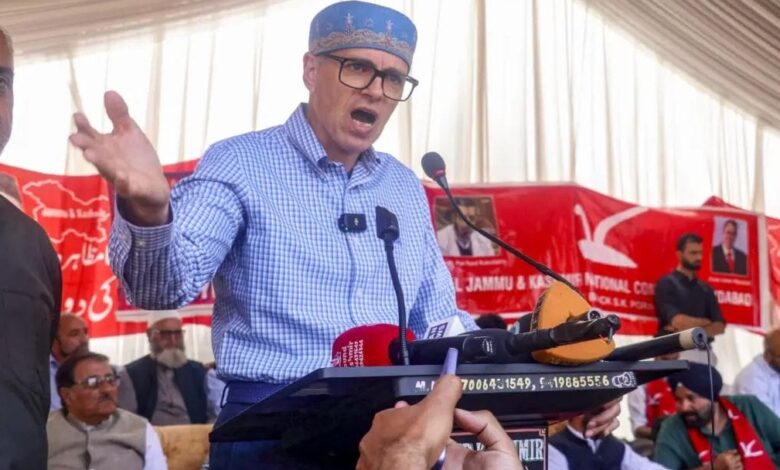Not My Thoughts, social Media Post on Engineer Rashid’s win meant to spark debate: Omar Abdullah

National Conference leader Omar Abdullah has dismissed claims that Engineer Rashid’s win in the Baramulla Lok Sabha seat strengthens “secessionist” movements. He clarified that his social media post highlighting the victory was meant to spark a debate and not to express his own views. Abdullah emphasized that the views shared were intended to promote dialogue and raise awareness about election discussions on both national and international stages.
The controversy began when Abdullah posted a news article suggesting Rashid’s win would empower “secessionists.” This post was misinterpreted by a private television news agency, attributing the article’s excerpts to Abdullah himself, which triggered reactions from mainstream politicians in Jammu and Kashmir. Abdullah reiterated that if those were his views, he would have shared them during the campaign, possibly in a speech.
Reflecting on his defeat by Sheikh Abdul Rashid, popularly known as ‘Engineer Rashid’, Abdullah admitted that emotional appeals played a significant role in the election outcome. Rashid, who is currently jailed under the UAPA, won by more than two lakh votes. Abdullah conceded defeat and congratulated Rashid on his victory, acknowledging the impact of Rashid’s son’s plea to voters to help free his father.
Abdullah noted the difficulty in countering such emotional appeals, stating that it would require a heartless approach to dismiss Rashid’s son’s plea. He emphasized the importance of understanding the sentiments of the voters, which played a crucial role in Rashid’s campaign success. Abdullah also defended against claims that his loss indicated a rejection of dynastic politics, pointing out that other political figures with family backgrounds in the region have won.
Addressing the broader implications of Rashid’s win, Abdullah highlighted the significance of discussing election dynamics and the perspectives shared across the country and the world. He maintained that promoting such discussions is crucial for a healthy democratic process. Abdullah also noted that political opponents might twist his words, but emphasized the need to hold him accountable for his own views only.
In evaluating his campaign, Abdullah explained that the decision to contest from Baramulla was based on party inputs and ground assessments. However, he acknowledged that factors evolved during the campaign, leading to unexpected outcomes. Despite the loss, Abdullah expressed acceptance of the results and reflected on the importance of staying attuned to voter sentiments.
Finally, Abdullah expressed no regrets about his actions during the campaign but indicated that he might consider different decisions if given another chance. He maintained that his objective was always to engage in meaningful dialogue and to understand the electorate’s concerns, underscoring the dynamic nature of political campaigns and the importance of adaptability in politics.





